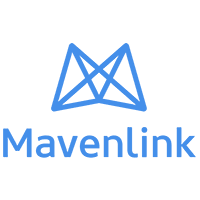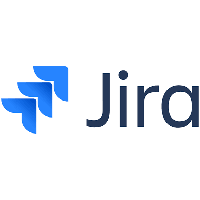Project Management Tools and Software
Software is a big part of our daily working lives at this point. In fact, you probably can’t remember the last time you went a whole day at work without looking at your computer, a business-related smartphone app or your tablet. You probably didn’t even make it until lunch without these tools playing a part in your morning in the last few years.
Designed to help your team be more productive and manage short and long-term tasks whether you’re making software, marketing or creating a product, project management tools are everywhere today. If you’re thinking about adding one to your workflow, knowing where to start can be tricky. You might not even be completely sure what they do!
Keep reading to learn more about project management tools and software and how they may be beneficial for your brand. You can also check out our reviews on top individual project management software solutions.

What is the Role of a Project Manager?
In an old-fashioned office, a project manager would work to oversee the day to day operations of any given number of projects that a team was working on. A project manager for a small company might even oversee several teams working on different projects. Their role would be to guide and steer the project so it remained on track and efficient. In a sense, a project manager is a task manager – but in a good way.
While project managers certainly do exist in many offices, a lot of companies with employees spread out across the city, state, country or whole world now use a software version. The aim of these software project management tools similar – they’re there to help you and your team stay on track and deliver products or finish tasks on time.
Examples of Popular Project Management Tools
Not quite sure what project management tools do or how they work? Here are some of the examples of what different software solutions can offer:
• Idea management. Through idea management, companies can “brainstorm” or develop products. Idea management and “idea boards” are also commonly used for revising products.
• Tasks lists and tracking. Every project needs certain tasks to be done in a certain timeframe. Task lists and managers can help.
• Collaboration. Through chat or other methods, project management software solutions make it easy for teams to communicate and work together. Collaborative tools also help cut down on face-to-face meetings and calls by compiling relevant information and data in one place so other team members can see it.
• Milestone markers. From setting milestones to tracking them, your project management software can help. Many advanced tools can help you create milestones according to your goals.
• Analytics. Collecting feedback from users or testers in one place can help teams incorporate suggestions, spot bugs or fix potential issues before release.
• Sales, billing, billable time and financial tracking. Some tools even allow you to bill and create invoices right from your software program.
How Can Project Management Software Help Your Business?
Not long ago, people who worked on projects together tended to share office space. While you might be down the hall from your colleague, you could quickly and easily knock on their door when you had questions. Today, that’s a whole lot more difficult since working remotely is pretty much the new normal in many business sectors.
Project management software can help with communication, as many have built-in chat and instant messaging systems. Setting reminders and sending task-related notes, calendar information, and to-do lists can also help with communication and productivity in general.
Many users also claim that this type of software makes it easier to manage both short-term and long-term goals. This can be very helpful when you’re working on a project that won’t see completion for some time but requires regular daily work.
An assortment of different project management software solutions also allows for unique tracking of things like billable time, hours spent on a task or project and invoicing.
Are Project Management Tools Easy To Use?
Ease of setup and use are common concerns when considering the addition of project management software. Unfortunately, those concerns are a bit hard to address and need to be evaluated on a case by case basis.
Do you have a tech-savvy team? If so, integrating new software into your workflow won’t be particularly difficult. Tech-related companies developing apps or software will likely have any software you throw at them mastered in a matter of days.
Less tech-focused teams may struggle with the initial setup and regular maintenance required to keep their dashboard functional and in order. In worst-case scenarios, adding project management tools to your process could slow down production until everyone has a firm grasp of how they work.
Many companies that offer project management software do have professionals available who can help you set up and manage your new tools. Some even offer in-person or online tutorials to help your staff get up to speed. For many companies, these can be very helpful, at least when it comes to understanding how to get started and handle basic tasks.
Project management tools can help your creative and business team members collaborate, coordinate and meet essential goals. They may even help you develop data about your business that allows your company to grow considerably over time.
With so many different tools available on the market though, taking your time to choose the right one is a must. Many offer free trials, allowing a few of your high-level team members to try these programs to see if they’re a good fit. Doing this is invaluable if you don’t know where to start.
Before long, you’ll find the perfect project management software solution for your business.
Advertising Disclosure: This post may contain promotional links. Watch the Review may be compensated if you use these links.








